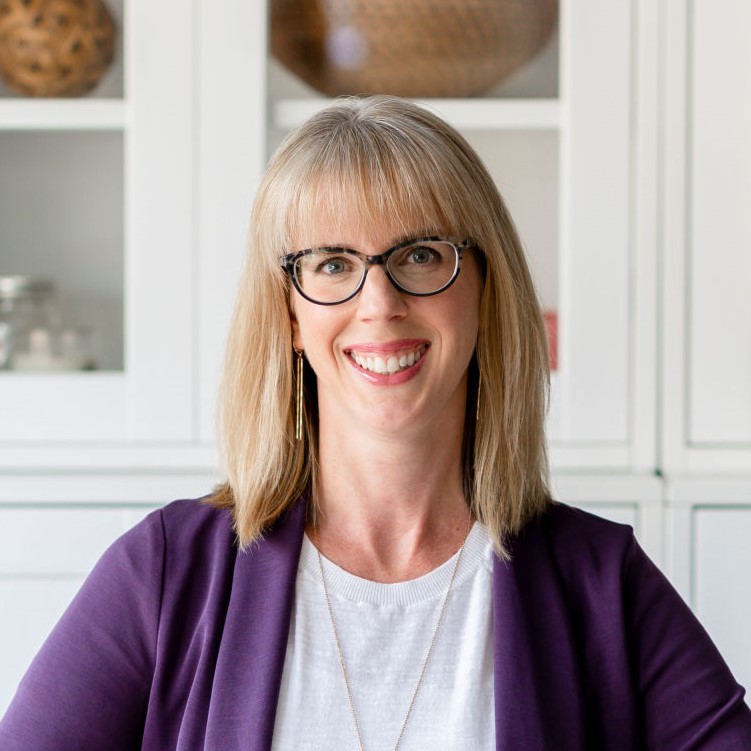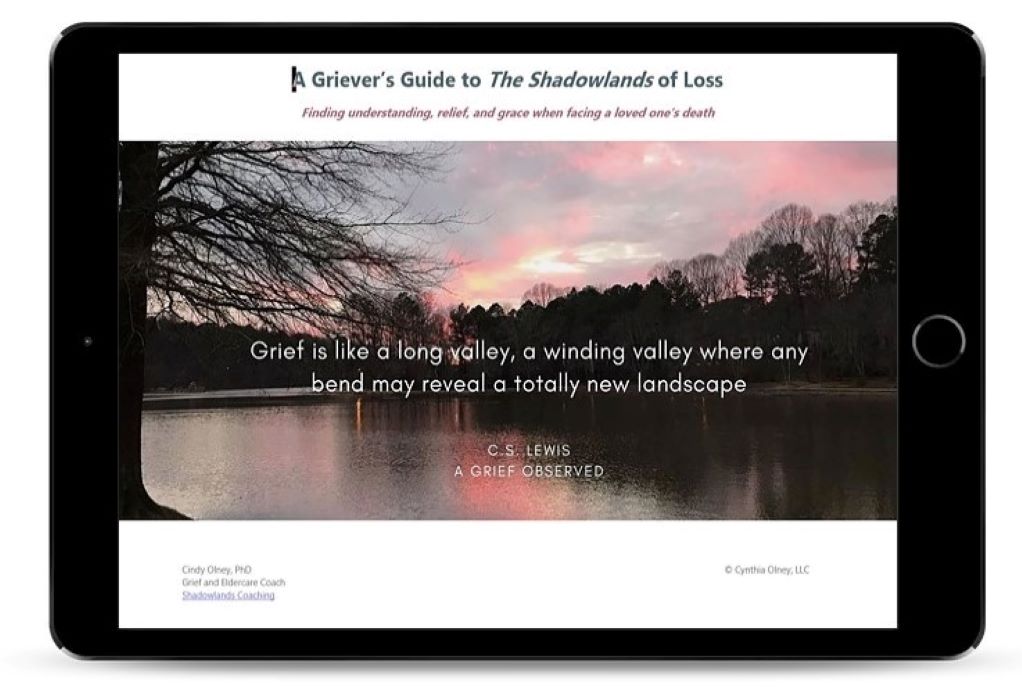The hardest thing I’ve done as an adult was help my husband settle his father’s estate. We called the 18-month ordeal “probate paradise.” Trust me, it bore no resemblance to a Jimmy Buffett song.
We were lucky. My father-in-law had a will.
Most people are not so lucky. According to a 2020 Gallup poll, only 45% of adults have a will. That means there are a heck of a lot of folks tearing their hair out right now as they struggle with a loved one’s estate.

The probate process was so mind-boggling and frustrating, it motivated my husband and me to get our own affairs in order. (After we recovered, that is.) We worked with a lawyer to draw up the document. Got family members to commit to being trustees, executors, and powers of attorney. Made digital and print copies and stored everything to safe locations.
But I knew we hadn’t done nearly enough. Not if I wanted to spare my family the angst we experienced.
Wills or trusts are necessary but not sufficient for a smooth settlement process. There are accounts -- so many accounts -- to pay off and close. Cars and houses to sell. Property to distribute. Appointments and calls to make. And it all requires volumes of information that exists all over physical and digital space.
I tried to find a way to organize the information and document everything my family would need to settle my affairs. But I ran out of steam. I fell back on my old strategy: praying I wouldn’t die before I had it all figured out.
I made little progress until a mutual friend introduced me to Jasmine Hathaway.
Jasmine is the founder of Compass Coordinators. The majority of her clients are widows and family members dealing with the intense project management of estate settlement.
She also works with planners like me who think ahead to our own demise. I mean, I’d prefer being remembered for my sense of humor and not for a nest of loose ends left for my next of kin.
Jasmine herself knows how awful the after-death responsibilities can be for the bereaved survivors. She was widowed at the age of 30. She couldn’t believe how much work she had to take on in the midst of her grief. So, like many heart-centered entrepreneurs, she started a company to provide the type of assistance she herself had desperately needed.
After our introductory call, I immediately signed up for the Beyond the Will package. Jasmine has a calm, grounded presence. The process she suggested for our work together sounded methodical and thorough. I was in.
In our first 90-minute session, she took me through an inventory of information that I needed to collect and organize for my executors. We outlined a letter to provide a detailed list of instructions to help them put their hands on necessary documents and information.
To motivate me to take action, she set up a follow-up appointment before our meeting ended. The accountability step worked like a dream.
I’m still refining my organizing system and instructions. And, when the system is in place, it will still need ongoing attention to keep up with the twists and turns of life.
But I also know the work I’ve done so far is a gift to the family members who will deal with my affairs. Things are in much better shape than they were in December 2021, when I first met Jasmine.
Just so you know, I’m not an affiliate of Compass Coordinators. I’m a satisfied client. And I’m a huge advocate for getting one’s affairs in order.
Jasmine agreed to let me interview her for my Postcards from the Shadowlands blog. Below, she talks about her unique business and what motivated her to start it.
How would you describe your business to a potential client?
Compass Coordinators is dedicated to helping people with “the business side” of life’s most difficult challenges. We help people through transitions of loss, when emotions are high. We guide them through the process in bite-sized pieces. We help them move forward with baby steps.
Who are your clients?
They’re mostly widows who are completely overwhelmed with loss and with the tasks that fall to them to manage. Many are younger people. They have no roadmap. No will. No attorney familiar with their situation.
I also help pre-planners who know they need a plan and don’t know how to put one together. I help them wrap their heads around what’s important, what paperwork needs to be in order.
How do you help your clients?
We have an Initial conversation to get the “lay of the land.” Then, we dive into the details. I organize, ask questions, and schedule regular follow-up and updates. My services give them an accountability boost. It’s the main way I help people move along when they’re stuck.
When people come to me, they’re often overwhelmed. Doing these research-oriented tasks is very difficult. I personally have good research skills, but when I was going through my own situation, I couldn’t use them! The brain fog and profound grief have such a huge impact on our ability to move forward.
Speaking of which, tell me about your situation.
When I was married and expecting our first child, my husband was diagnosed with terminal cancer. It put the brakes on our dreams and plans. We put a lot of trust into the world of doctors and hospitals and chemo. Since that was our focus, we didn’t make a lot of plans for if and when he died.
When he did pass away, I was a new mom, working full time, and was caught completely off guard with all the accounts I was responsible for closing. It was crazy to me that the closest next of kin, the bereaved, was the person responsible for handling all this paperwork.
I just wanted someone to help me project manage, but I couldn’t find anyone to do that.
I did what I had to do. And the more I talked to others who’d had similar experiences, the more they shared their stories. There was a common thread in their reactions, which was “Are you kidding me?” There’s too much to deal with when you’re grieving and managing this huge transition.
I had the background to help bereaved people through all the tasks they faced. I have good skills in organization, research, and technology. So, I started Compass Coordinators.
What are your clients struggling with most when they first start working with you?
They feel like they should be able to do the things they need to do but are finding it difficult. They’re overwhelmed. They’re facing reality AND dealing with business, budget, canceling subscriptions, filling out forms. They know these things will have tangible, positive impact. But the work feels like too much.
As for preplanners, those are the people who know there will be a point at which they won’t be able to handle their own affairs. They face that reality and want to be sure family members aren’t up the creek without a paddle. Many of these clients themselves went through estate settlement for a loved one. They know how difficult it can be if proper advanced planning wasn’t done.
How do you help them get through their experiences?
I help them regain a sense of control. I set up a way for them to measure their progress by tracking these little tasks that get done. They see things getting back under control.
Also, I help as an accountability partner. I’m someone who can talk with them about all the things on their plate without disengaging. Most of the other people in their life don’t know how to help them with their tasks. My assistance can be comforting when they feel like they don’t have to go through this alone.
What do you love best about your work?
The people. I love every single person I’ve connected with. Not just clients, but others who’ve shared their stories. It’s amazing to live in this authentic and vulnerable space with people. People don’t always get that in the work they do. I’m living the life I was meant to live.
What would you like potential clients to know about the support you can offer them?
Usually, people know there are experts to consult like lawyers and therapists. I provide a different type of support, for the tangible pieces. The forms to fill out. Phone calls to make. Appointments to schedule.
I also function as an entry point to other professionals. They come overwhelmed and unsure about how to move forward. I do the research to help them figure out their next steps. I hook people into specialized resources when they don’t know where to find them.
When should my followers consider contacting a professional like you?
They should call when they feel stuck in getting through tough transitions like a death, divorce, or separation. For those dealing with a death, that usually hits when they get the death certificate (about four weeks after the death). But I also can work with people who are well into the process of estate settlement and just need a helping hand to move things forward.
Also, people can call when they want help getting things in order, like you did! If you know there are things that your family might need access to that aren’t covered in your will, I’m happy to step in and help make sure you’ve got a plan, secure storage options, and directions for everything.
What training did you need to do this work?
When I started this business, there was no training. I’m hoping to change that. I’m working with peers to create common best practices, standards of ethics, etc., for this type of support. Our group is called Professionals of After Loss Services. (PALS) https://www.afterlosspros.com/
We think this service is going to be more popular as awareness spreads.
What geographic areas do you serve?
I live in the Charlotte area, but the majority of my clients are not local. Since COVID, people have gotten much more comfortable doing things over Zoom. Because I don’t offer legal or medical advice, I’m not constrained by having to know processes and procedures that are specific to a state. I give more universal guidance.
But I also can research state-specific information. There’s publicly available information that I can track down to help clients resolve issues tied to where they live. I can’t answer all questions, but I can help them find the answers.
How can people reach you?
They can visit my website Compass Coordinators. The best way to get in touch is a contact form, but phone calls are great too. You can find both options there, plus more information about how my services work.
I offer a free (for the first 30 minutes) meeting via phone or Zoom.
I strive to be honest and work with high integrity. So that free call is NOT a sales call. If it’s not a good fit, we talk about that. It’s just an opportunity for me to listen to what’s going on, connect and point you in the right direction, even if it’s not with me.

*****April Classes****
Befriending Your Emotions:
(Yes, All of Them!)
Offered at three different dates/times
April 26, 2-3:30 pm ET
Wednesday, April 27, 7:00 - 8:30 pm ET
Saturday, April 30, 2:00 - 3:30 pm ET
Cost: $33
For information and enrollment, visit the class page.
Questions about coaching? Schedule a free discovery call. Click the button below to get started.
Rather connect through email? Send your questions to cindy@shadowlandscoaching.com.
Have you recently lost someone dear to you? Or are you worried about someone who has? Download your free copy of A Griever's Guide to The Shadowlands of Loss. It covers some key elements to grieving and a few helpful strategies that can ease your experience of grief.
